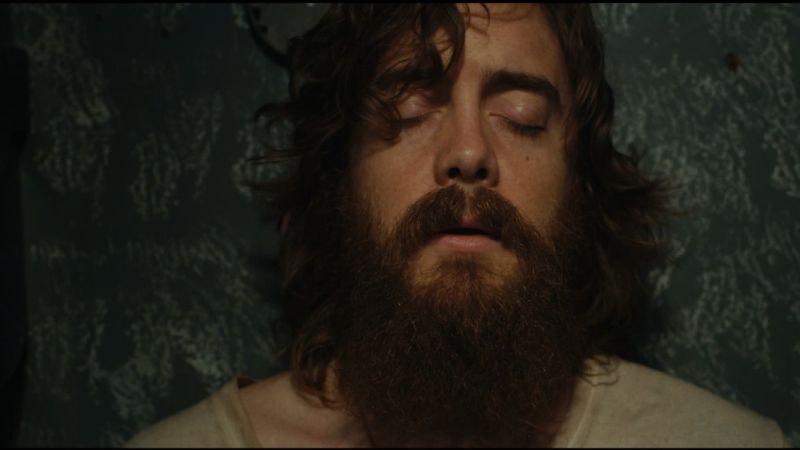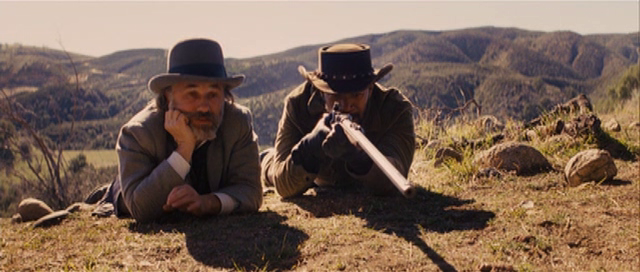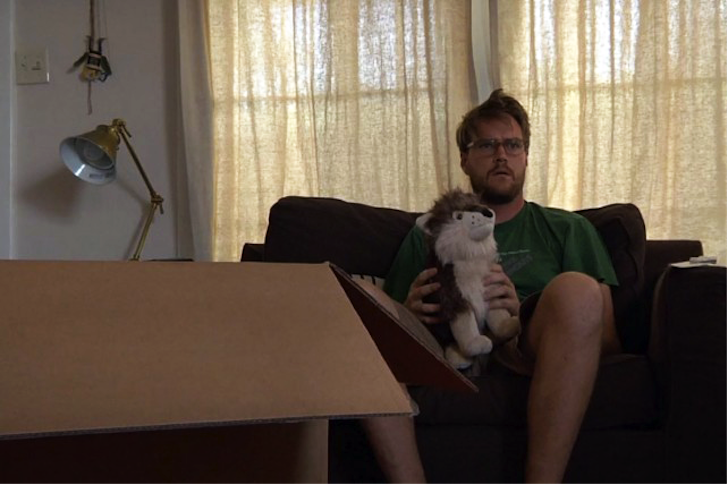Summer–time for staying at home and lazily watching Netflix!
Blue Ruin
2013. Directed by Jeremy Saulnier

The family feud is a staple of classic American storytelling, but it’s hard to imagine the backwoods familial wars portrayed in, say, Huckleberry Finn happening in modern day America. That’s why Blue Ruin is so compelling–it tells a story of revenge and violence between two feuding families that you wouldn’t imagine could happen today, but in a totally convincing way.
The film’s conceit is fairly simple–if the cops aren’t called and the violence is concealed, a blood-soaked feud can go on almost indefinitely. Blue Ruin has no clear heroes. The protagonist starts off on a righteous path, but as the film progresses and more of the past is revealed, his justice-seeking vigilantism begins to lose its way. The filmmaking is tight and tense, the music haunting, the tone perfect. It doesn’t revel in violence so much as mourn it’s misguided use. This is a mournful film about the mutual destruction of those who cannot forgive on both sides of a conflict.
Django Unchained
2012. Directed by Quentin Tarantino

This film is frustrating because, like Tarantino’s previous Inglorious Basterds, it’s a period piece rife with inaccuracy yet buzzing with commendable rage. Just like the commando heroes in Inglorious couldn’t have known the true horrors that were being enacted against the Jewish people by the Nazis in WWII Europe, the heroes of Django could not have had the twenty-twenty vision of slavery in the American south that we have now, nor the knowledge of it’s immanent downfall to avenge it so fearlessly. This then is revenge wish fulfillment, similar to the ending I always imagined for Disney’s Cinderella, where I somehow magically entered the film myself and punched the evil stepmother in the face over and over again. But instead of punching a wicked matron, our heroes gun down hoards of stereotypical white trash slavers as they howl in inbred hatred and stupidity–pure wish fulfillment.
This is the first Tarantino film I’ve seen that has characters the filmmaker seems to truly care for. Every one of his films up to this point has felt like a cold chess game, where characters are merely pawns to be intricately played into bloody conflict with each other. Yet in this film there are scenes where freed slave Django and his German liberator Schultz are treated with true affection, allowed to be more than just men of violence but good men who care about what’s right and show love and compassion to others. That they are then catapulted into the roles of bloody avengers is discordant with their characters, and makes for a frustrating viewing experience. The ending, truly Biblical in it’s righteous wrath, again suddenly becomes a lighthearted western romp–a great homage to exploitation films of the 70’s, but another discordant note in an incredibly discordant film.
Creep
2014. Directed by Patrick Brice

This is a found footage film that’s startling in it’s simplicity and the surprising humor its scenarios generate. It trades less in jump scares than in uneasiness and could have easily been a comedy with a few basic modifications to it’s plot. In a way it still is a comedy, a slight character study of a bizarre yet winning personality who is as funny as he is frightening. There are a couple eye-rolling moments when you have to ask why anyone would have kept a camera rolling, and the character who operates the camera–who is also the director–isn’t the best actor, but overall the film works and ranks closer to found footage masterpiece The Blair Witch Project than most of the recent found footage garbage.
